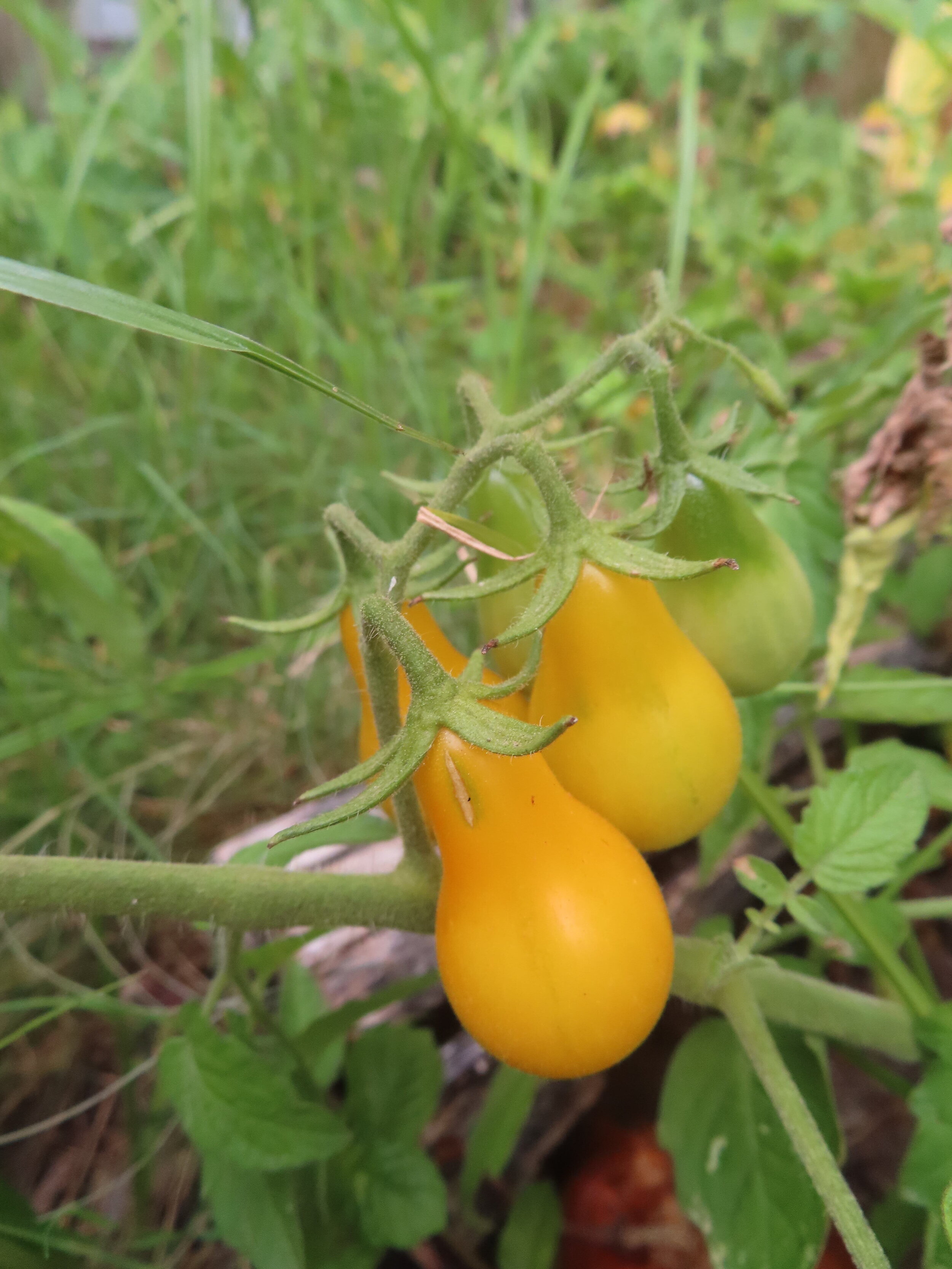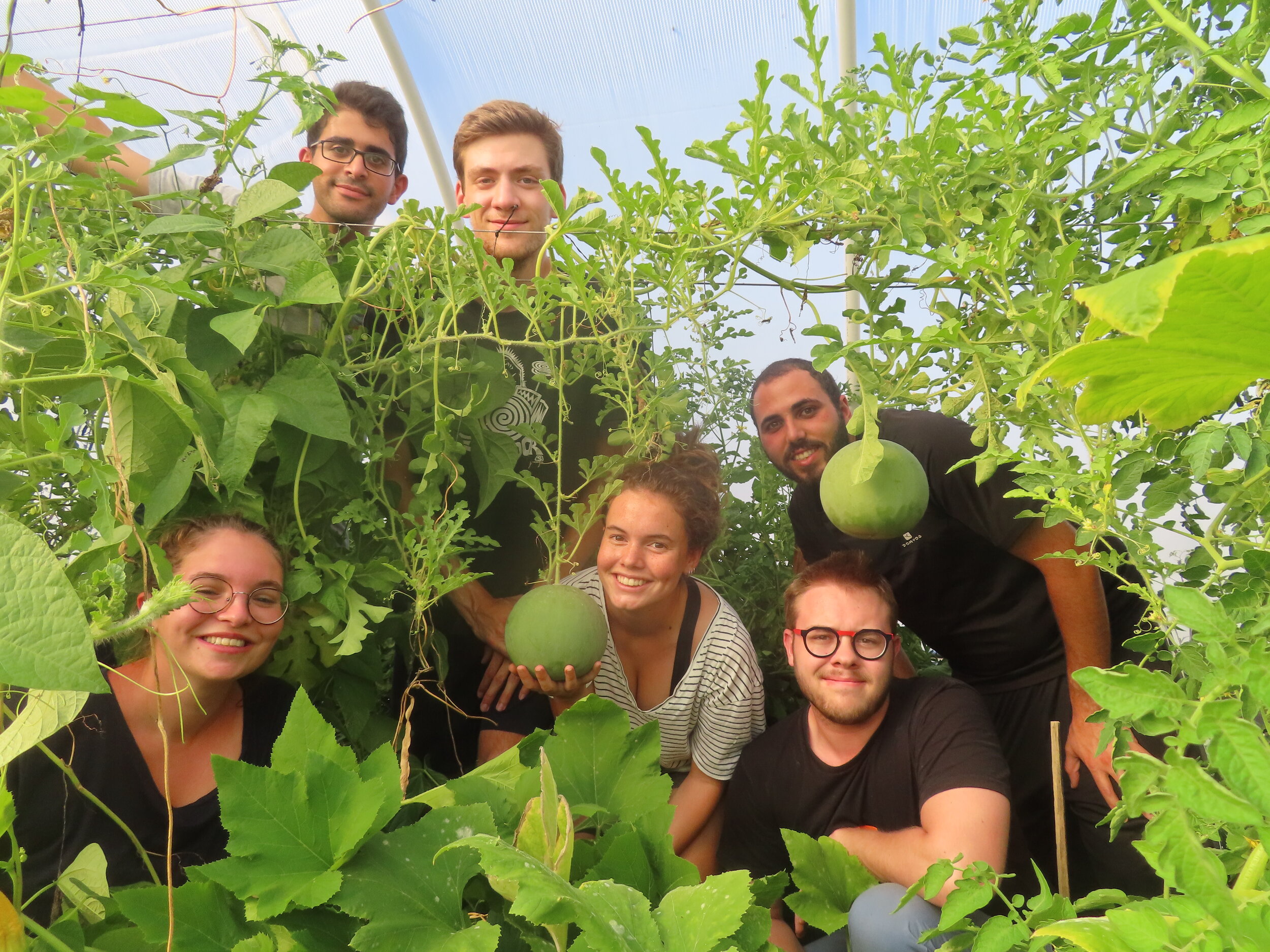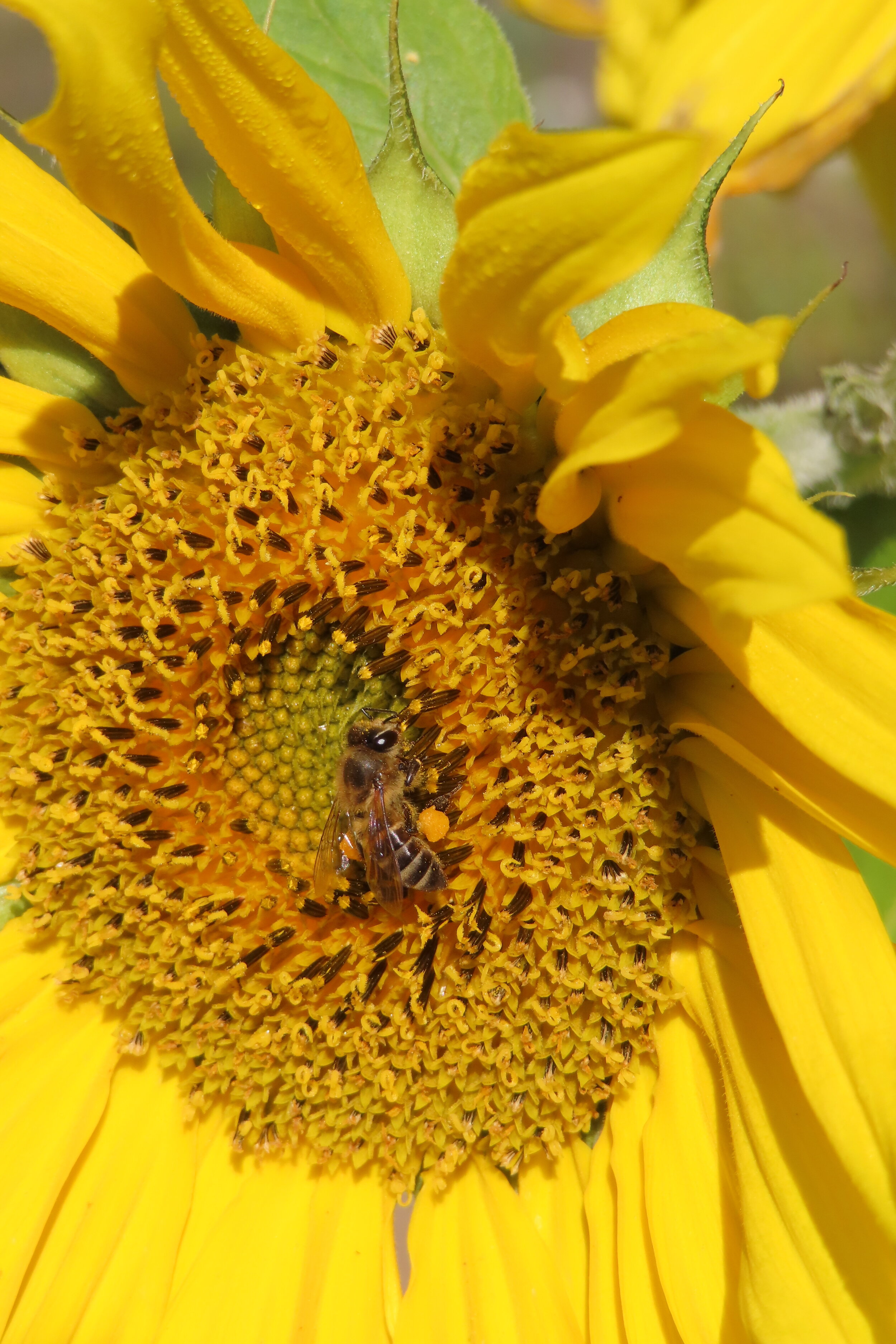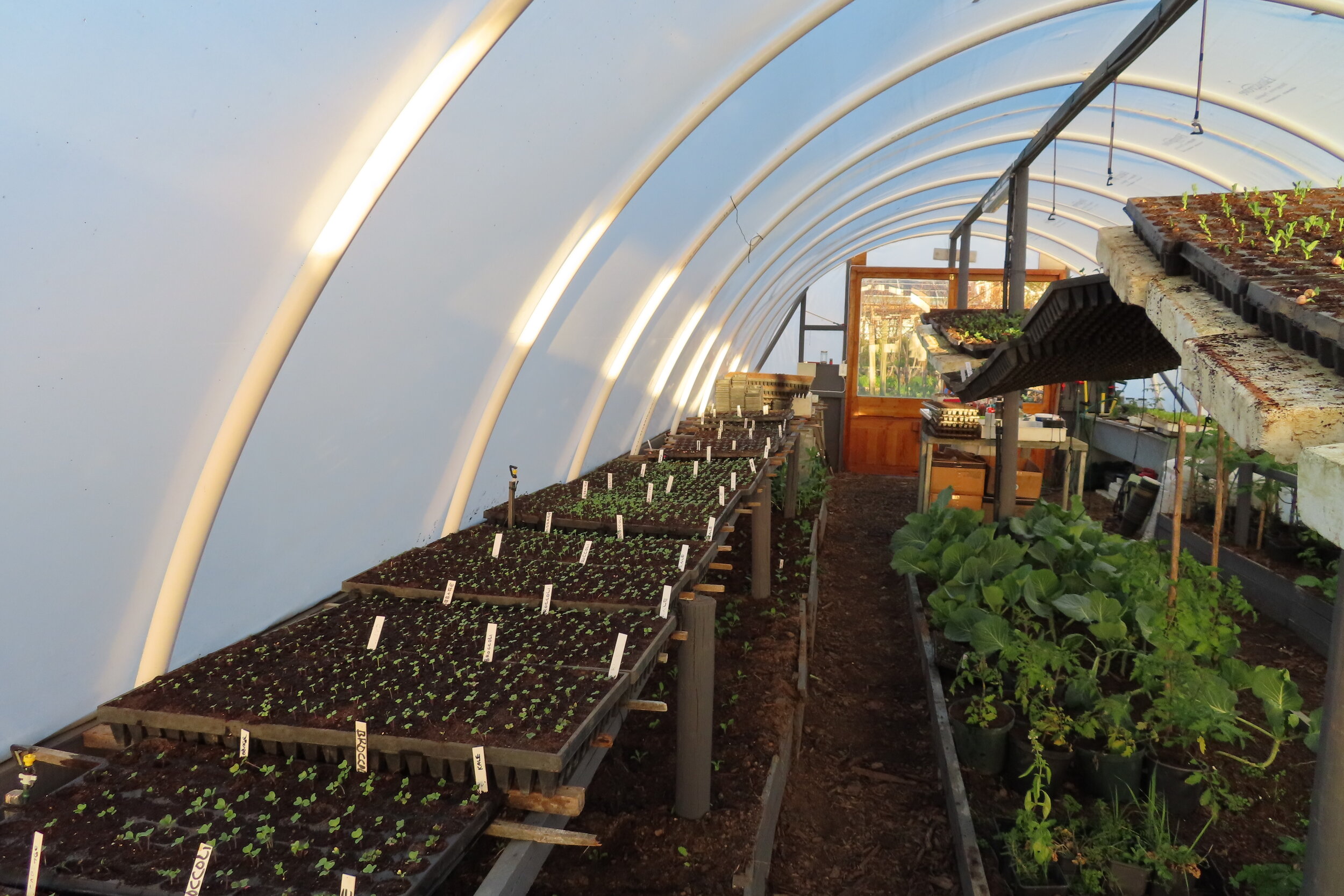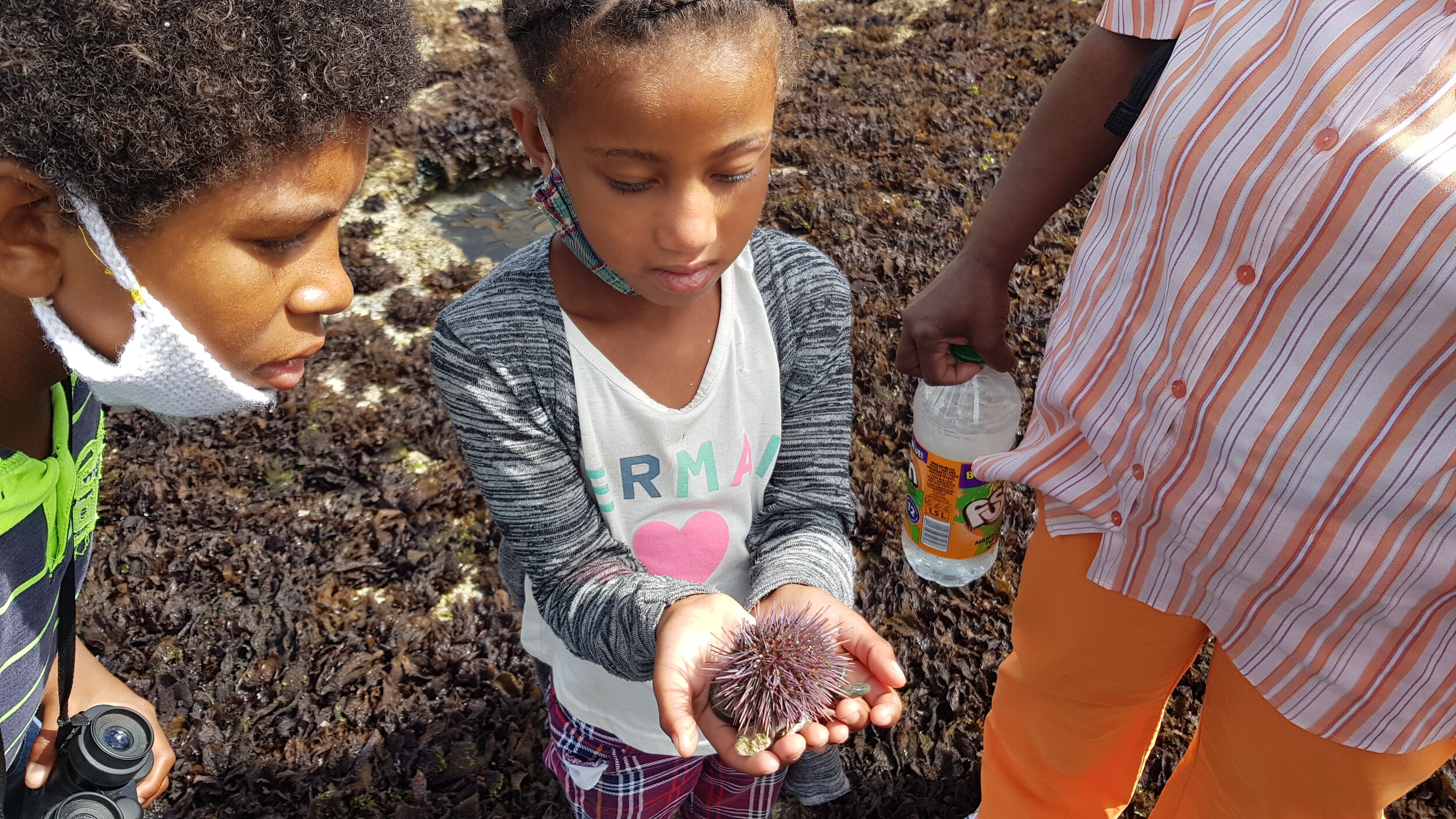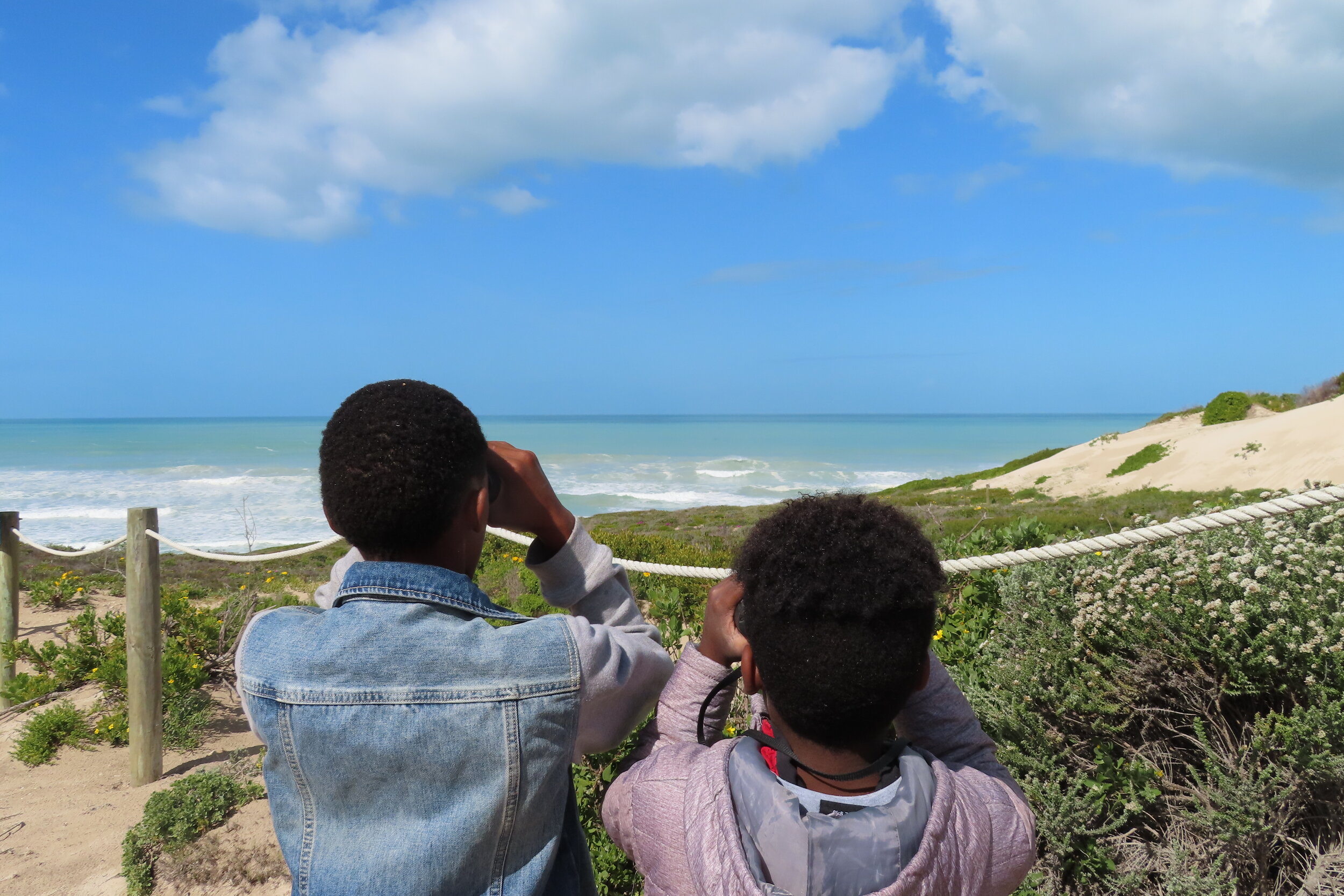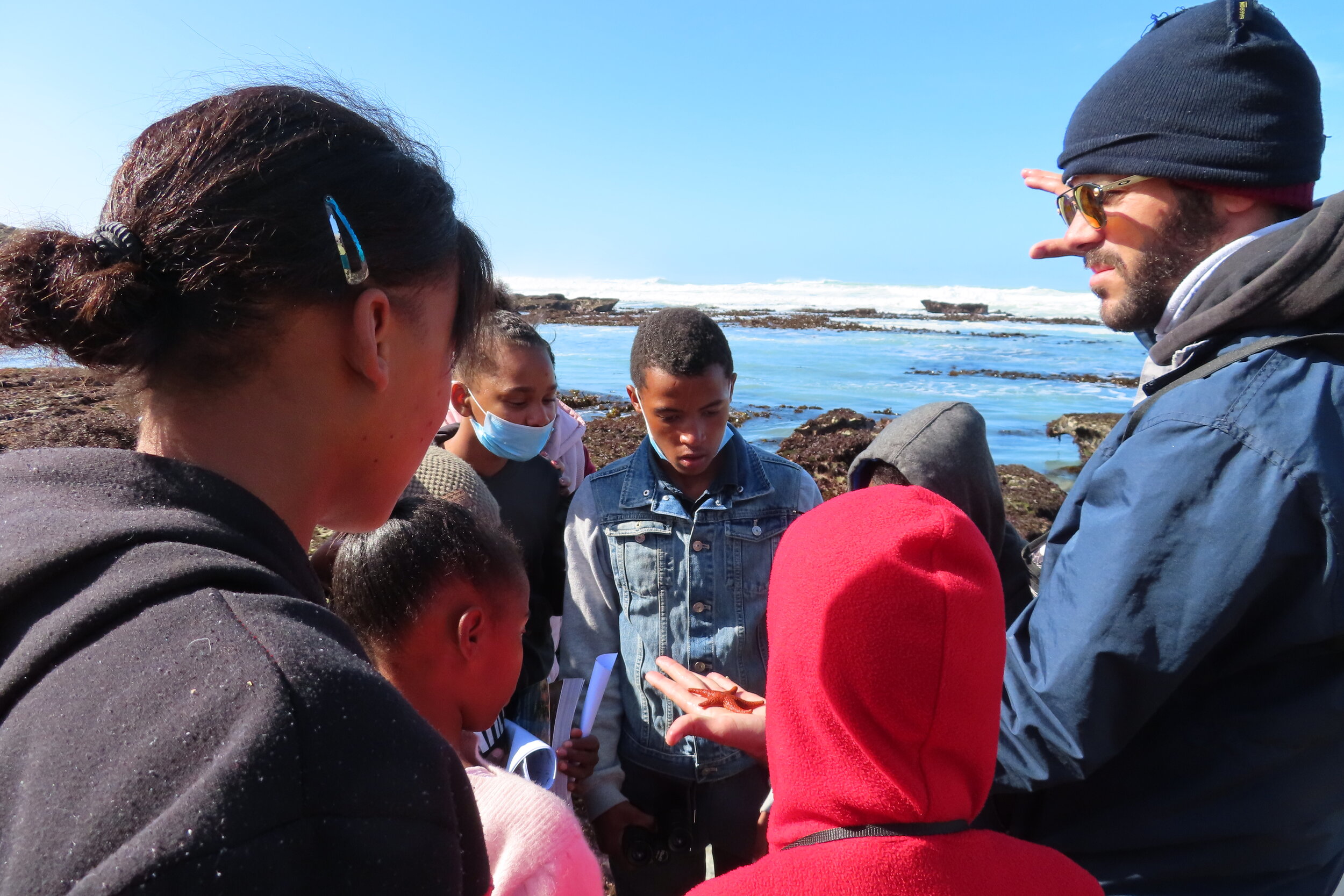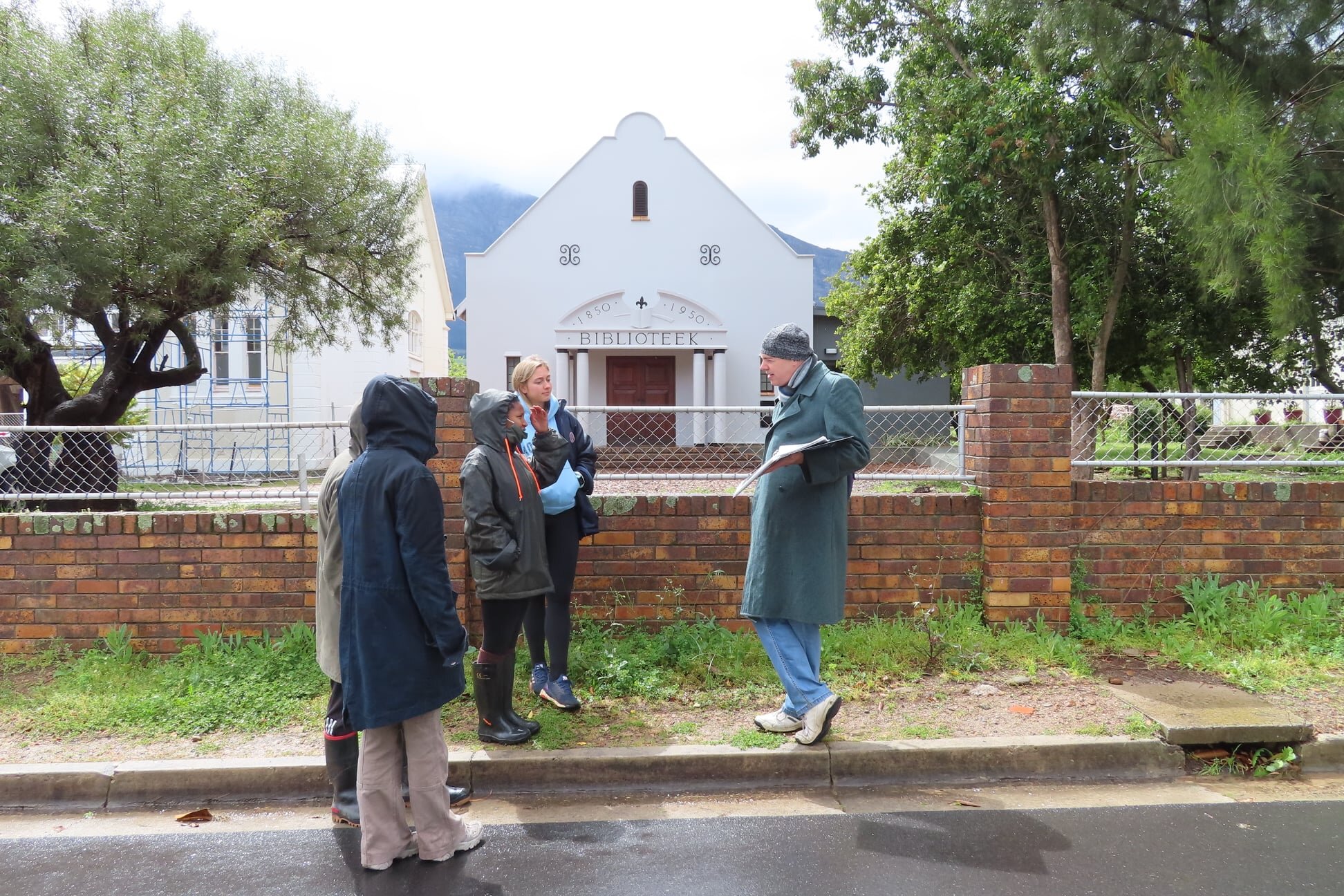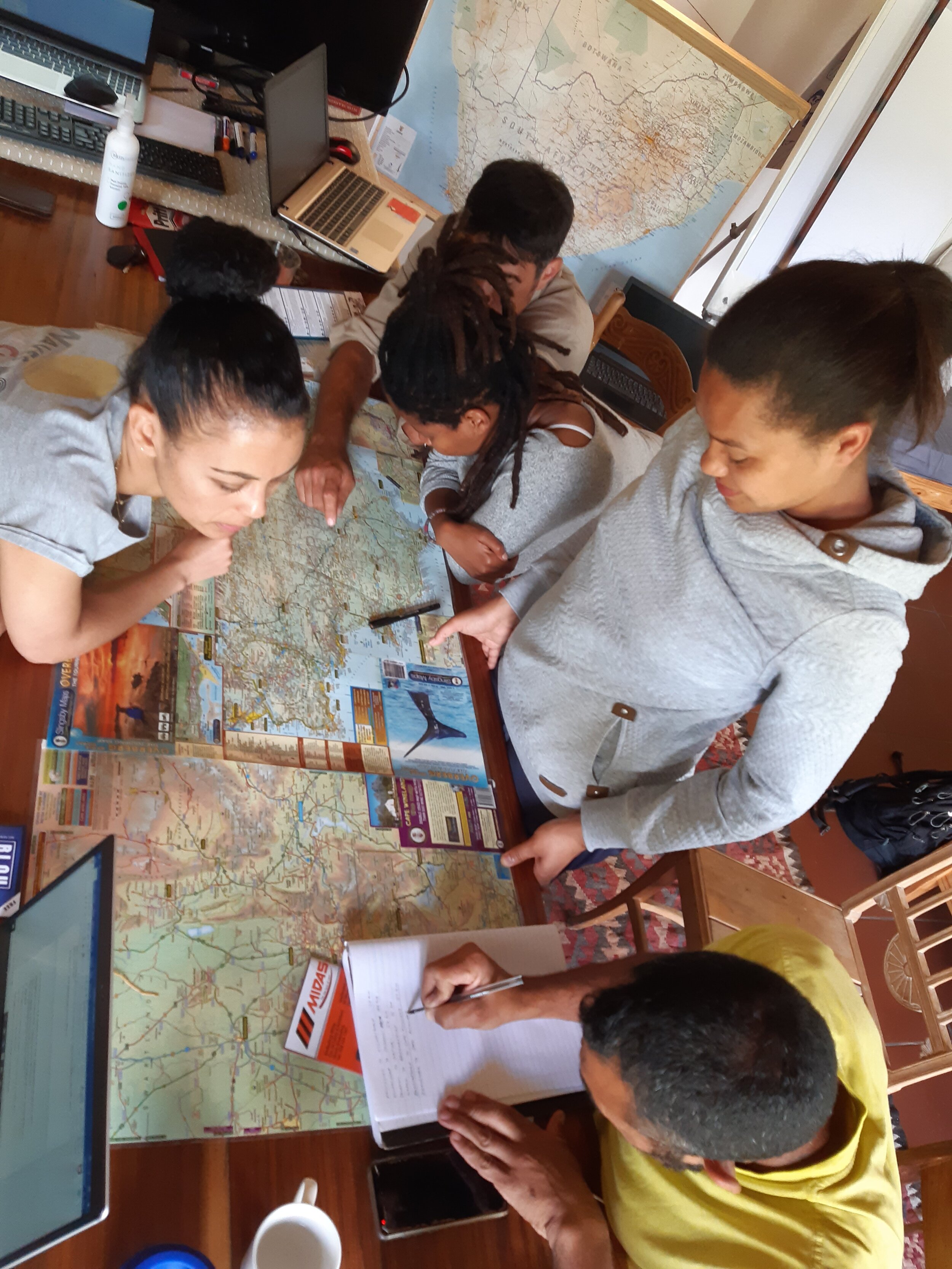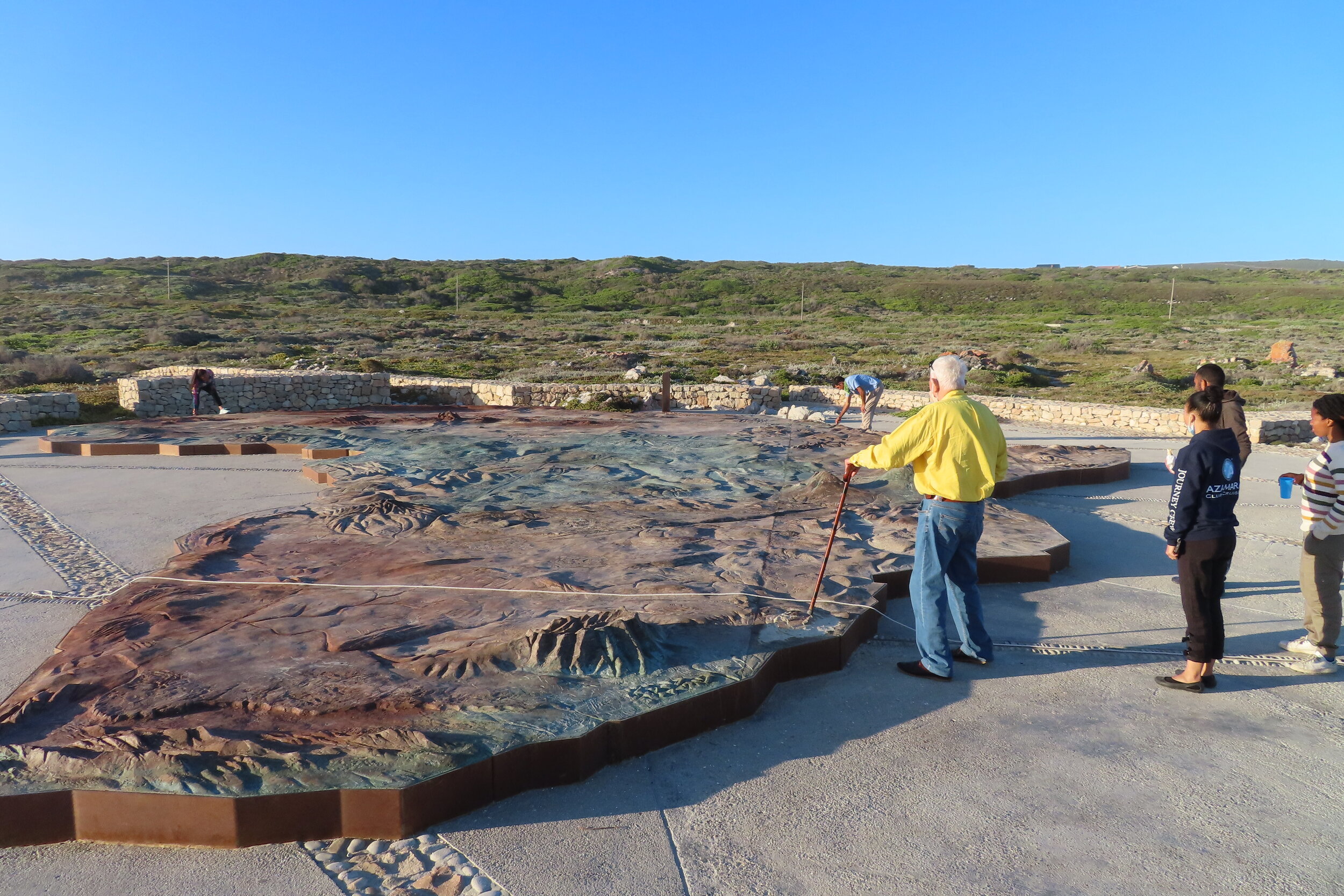CWBR Chairman Progress Report 2020
The year 2020 became a most unusual one when in March a new, world-wide virus infection became a pandemic, forcing many businesses and organizations to close down. Not so for the Cape Winelands Biosphere Reserve (CWBR). Under the strong leadership of its CEO Mark Heistein, his very able secretary and assistant Celine MacDonald, staff, and volunteers, it had a continually active and productive year.
Among the CWBR projects are the following:
1. Health and Nutrition Programme
Through the partnership with Athénée Action Humanitaire (AAH) NGO of Luxembourg the CWBR developed a Health and Nutrition Programme which provided food parcels and facilitated workshops on growing food in community and individual gardens, thus reaching the most in need who have access to no other help and helped to ensure food security.
Soup Kitchens and Food Garden Ambassadors in Villiersdorp
In total the CWBR has provided 2258 food parcels from April 2020 to December 2020, while 16 soup kitchens have been supported with dry and fresh produce reaching over 5000 people per week. Through the workshops that teach sustainable food gardening 40 community and individual gardens have been established and 108 individuals reached. The success was due to identifying mentors in the community and exciting out of school youth about growing their own food. WhatsApp support groups were set up for ongoing communication and support between workshops.
Due to success of this programme, the CWBR was approached by UNESCO to create a ‘Proud to Share’ 1 minute video – featured on their social media platforms and part of a Good Practices article.
2. Biosphere Reserve Hub
At the Biosphere Reserve Hub in Franschhoek a food garden has been established that displays different methods of food production in small areas and serves as a hands-on learning space for school groups, youth groups, and the general public. It has supplied over 35 000 seedlings to community gardens and individual food security initiatives in McGregor, Villiersdorp and Jamestown.
3. Edu-Link Project
Also, in partnership with AAH of Luxembourg, the Edu-Link project continues to support the Early Childhood Development (ECD) Centre the CWBR established in Franschhoek in 2019, ensuring that all educators continue to be upskilled through teachers training. Thus, two teachers are currently receiving training at ECD Level 4 at Boland College and Grade R at Cape Peninsula University of Technology. During closure of the school as a result of the pandemic, 25 families and 5 teachers were supported with food parcels. The school reopened in September 2020, C19 compliant. Three outings for ECD pupils are facilitated to enable them to engage first-hand with nature, and live fauna and flora.
EFATA ECD Pre-Covid19
4. Mobile Classroom
A new initiative of the CWBR, in partnership with AAH, is the establishment of a Mobile Classroom. This trailer has arrived at the Biosphere Hub and is being fitted out with interior custom-made storage and foldable tables to host a CWBR ‘Lab’ for education. It is designed to inspire the minds of young people through practical, fun and engaging Science, Technology, Engineering, Math’s (STEM), and Art activities. It offers the opportunity to make STEM education more relevant and engaging by applying and hosting activities in real world settings such as community gardens, pristine natural spaces, and other community settings. The CWBR is collaborating with USIKO Stellenbosch to reach youth through 100 contact sessions in 2021. As part of this collaboration, 10 facilitators combined from both organizations have completed a course in
Mobile Journalism. Through the use of mobile phones, educational bites will be produced and shared with young learners on different subjects within Science, Technology and Engineering related health and nutrition. Teaching material will be available in three languages to start with.
The Mobile Journalism team
Picking up the custom made classroom
5. Hikes and Educational outings
The CWBR organized outings to reconnect youth and communities to nature and encourage them to preserve the natural environment. 256 youth have participated this year.
6. Field Guide Association and Life Skills Courses
The CWBR continued funding Field Guides Association of Southern Africa (FGASA) and Life Skills Courses. The Association sets the standard and level of professionalism in the guiding industry. The FGASA and Life Skills course theory was taught online. In September 2020, 6 new students joined the course, focused on Cultural Guiding. Two contact sessions, and a day practical to Agulhas have taken place. In total 68 students have qualified since 2016.
7. Utilizing drone technology
The CWBR provides drone technology to map the alien invasive trees in the upper Berg and Breede-Catchment area. The data collected is used to estimate cost of clearing and assist management decision making. As well as supplied for other scientific research, including Socio-Economic Benefits of Ecological Infrastructure (SEBEI), municipalities, and provincial government.
8. Youth Board established
The CWBR became the first Biosphere Reserve in South Africa to establish a Youth Board. The newly established Youth Board has brought a new dimension to the operational capacity of the CWBR, in helping with funding applications, running projects, and creating awareness. Their vision is to bring a creative and fresh perspective to the CWBR team that is in tune with the youth today by implementing new, innovative approaches within existing projects and participating in the development of new projects. It is a diverse and dynamic team, with ages ranging from 17-32.
9. Building international connections
The CWBR continues to build partnerships with educational outreach organizations, research institutions, local and overseas partners to promote biosphere reserves and inspire a sustainable future. January 2020, the CWBR became the only sub-Saharan member of European Innovation Partnership on Active Healthy Aging (An information and knowledge exchange Hub – to build partnerships, inform projects, to promote and support innovation in active and healthy aging). The CWBR is a participant in the Be Resilient Project, a UNESCO initiative on using biosphere reserves as observatories for Climate Change Adaption in South Africa, launched in 2020. The CWBR also continues to be the chosen reference site for the African Climate and Development Initiative, as nominated in 2019.
My wish for the CWBR is that every inhabitant will become aware of the unique privilege it is to live in a Reserve, a Biosphere Reserve, situated in this beautiful part of the world. Hopefully, this awareness will result in lifestyle changes for many, accepting the responsibility of looking after it. While the major universal environmental problems of global warming, climate change and loss of biodiversity may seem remote, every individual can locally make a difference by reducing his or her impact on the Reserve by preventing pollution, recycling (paper, metals, glass, plastic), using less energy (electricity, fuel, wood) and water, reducing, or eliminating the use of pesticides, planting trees etc.
We are all fellow passengers on this revolving and circling airship in distress.
Jan Giliomee


